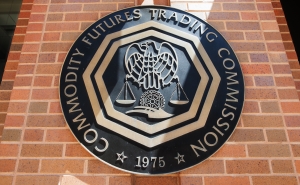Why Lightning Payments Aren’t Clicking for Porn Companies (Just Yet)
Why Lightning Payments Aren’t Clicking for Porn Companies (Just Yet)
Bitcoin may finally achieve broader traction through the adult entertainment industry in 2020, but the chips aren’t stacked in its favor.
So far, typical sex industry businesses like London’s 23 Paul Street strip club, said last June the venue stopped accepting bitcoin because customers simply weren’t paying with it. But the lightning network, a layer on top of bitcoin used for faster transactions with lower fees, may now be ready to facilitate broader payments for online platforms.
Iterative Capital’s Escher project offers fiat on-ramps to the lightning network, with other projects like Zap offering similar functionality. There are now service providers to feed a fledgling demand for lightning channels.
According to Veronika Mishura, marketing manager at the payment processor CoinGate, her startup processed 1,400 lightning invoices in 2019 for clients like adult industry sites LiveJasmin and CooMeet, with the average payment being worth around 12 euro. A LiveJasmin spokesperson confirmed the site does receive lightning payments for porn, although he declined to specify details.
“We don’t offer payouts in crypto and we don’t track the content per payment method,” he added.
There is certainly room for growth in the adult entertainment industry, as Pornhub famously had trouble paying performers with PayPal in 2019 and now lets performers cash out with Tether instead. ZmnSCPxj, a pseudonymous bitcoin researcher who recently received a grant from Jack Dorsey’s Square Crypto, said he expects privacy-enhancing mixing services to become a more popular part of the lightning economy.
“Improved privacy is always desirable and people will pay for such,” ZmnSCPxj said, adding that channel fees and transaction costs will be “minimal compared to mixer fees.”
Blockstream’s lightning expert, Rusty Russell, said in Q1 2020 his team is “working on making our payment paths less predictable, which improves privacy,” along with setups that can help “businesses transition from ‘playing with lightning’ to ‘relying on lightning.’”
He believes porn is an “obvious avenue” for lightning usage, given the high rate of credit card chargebacks. But, he added, “at the moment it makes more sense as an experiment for such sites given our small user base.”
Bitrefill CCO John Carvalho, who formerly ran the adult entertainment company XO Media, said, “Lightning payments can work in the adult industry, but not in any major capacity any time soon.”
Namely, Carvalho said, because video monetization software is expensive to build at-scale and erotic content creators aren’t offered access to some popular site hosting services. Few service providers will work with porn companies (at least at the same rate), which contributed to why some started accepting cryptocurrency in the first place. But these sites generally use internal credit systems, accepting bitcoin or credit card payments for centralized credits.
Spankchain CEO Ameen Soleimani said although his ethereum startup was “one of the first companies to put payment channels into production,” they promptly shifted gears because there’s still a lot of work to be done “around watch towers, wallet integrations, and merchant integrations before it can reach critical mass.”
“While crypto natives gave us a lot of support for being payment channel pioneers, normal users couldn’t care less,” Soleimani told CoinDesk. “They want a product that just works, and with SpankPay we’ve discovered (or rediscovered) that 0-conf instant payments are the way to go for fiat-competitive checkout systems.”
Still an experiment
Some bitcoiners are still altogether skeptical about lightning. Regardless of payment channels, bitcoin itself has plenty of privacy kinks to work out.
An anonymous Samourai Wallet co-founder, behind the privacy-focused bitcoin wallet that powers the Nodl mixing feature, said his own open-source team has “no interest in lightning” because mainstream adoption is a “poison pill.” (Perhaps as illustrated by the companies like LiveJasmin that don’t offer erotic performers the chance to hold their own crypto.)
“Bitcoin is in danger of replicating the system it set out to destroy,” he said. “I also don’t see retail, mass adoption pickup. … That’s a blessing in disguise and we should embrace that.”
Beyond adult entertainment, Mishura said CoinGate also processed payments for Habsak cafe in Oslo and usage is trickling down from tech experiments to rare customers. OpenNode’s head of marketing, Ryan Flowers, saying his startup processed over 68,970 lightning invoices received and 38,986 payments sent in 2019. Most lightning-oriented startups, including Carvalho’s Bitrefill and Flower’s OpenNode, are focused on expanding their pool of merchants in 2020.
As it stands, lightning analytics site 1ML.com tallies at least 11,174 nodes online and a network capacity exceeding $7.8 million. That’s why lightning advocates believe broader commercial usage of the network, beyond isolated experiments, could be on the horizon.
“The network is definitely becoming more liquid over time,” said developer Anand Patel, who earned roughly $3 a day over the past year by routing lightning payments. “If you’re going to pay a merchant, it makes sense that they don’t see your whole transaction balance or history.”
So far, small groups of merchants accept lightning payments, mostly for the curiosity factor. But since those adult performers and adventurous merchants rarely cash out in crypto, it’s still too early to see any significant benefits.
“Usability, thanks to something like [lightning wallet] Phoenix, is now good enough that more people can try it,” Bitcoin Core contributor Sjors Provoost said, noting that the last merchant rush followed the 2014 bull market, but hasn’t revived since. “So maybe, if there’s a price spike, we’ll see … more merchants trying it. Then we’ll see if it sticks.”
Disclosure Read More
The leader in blockchain news, CoinDesk is a media outlet that strives for the highest journalistic standards and abides by a strict set of editorial policies. CoinDesk is an independent operating subsidiary of Digital Currency Group, which invests in cryptocurrencies and blockchain startups.









